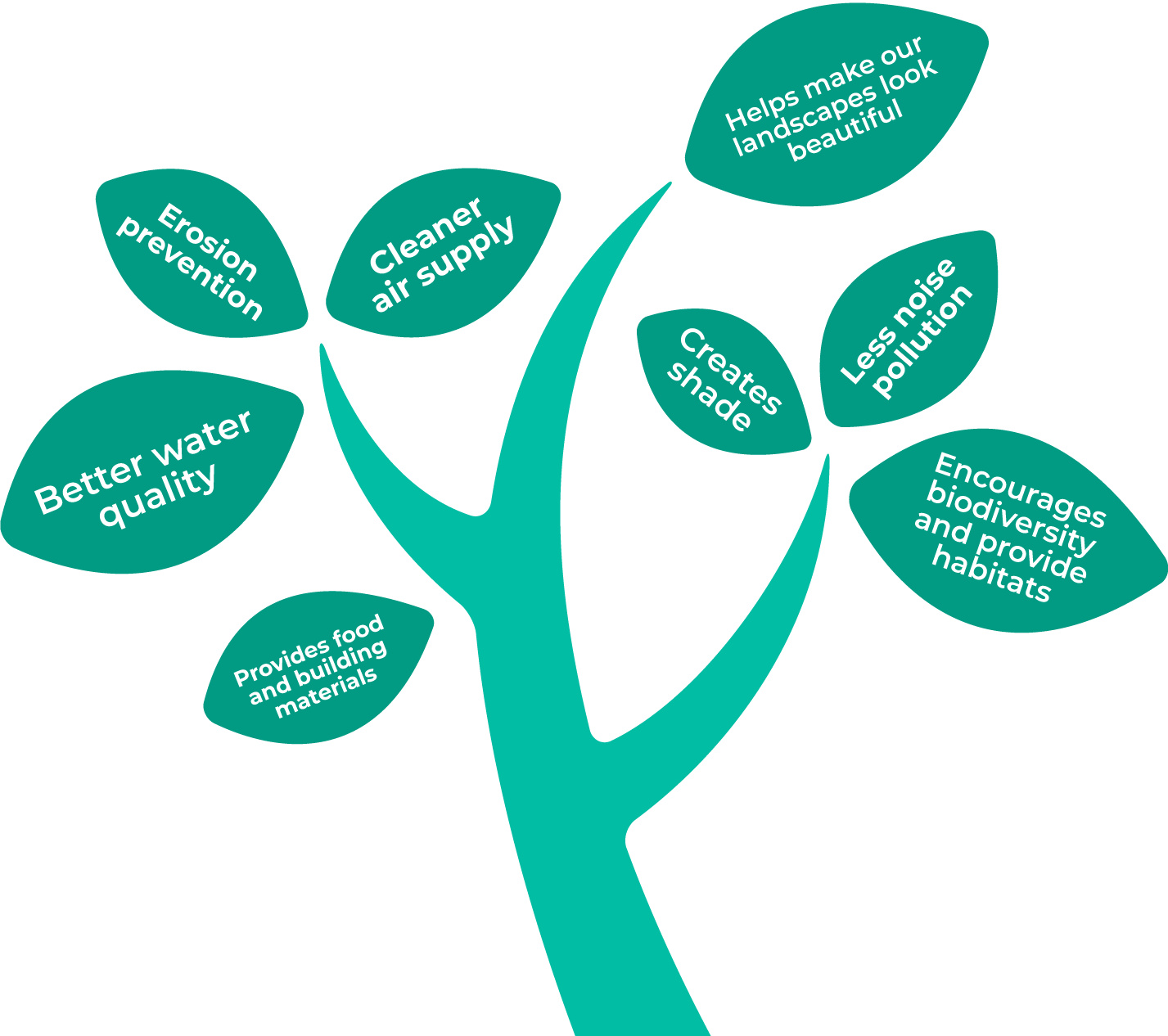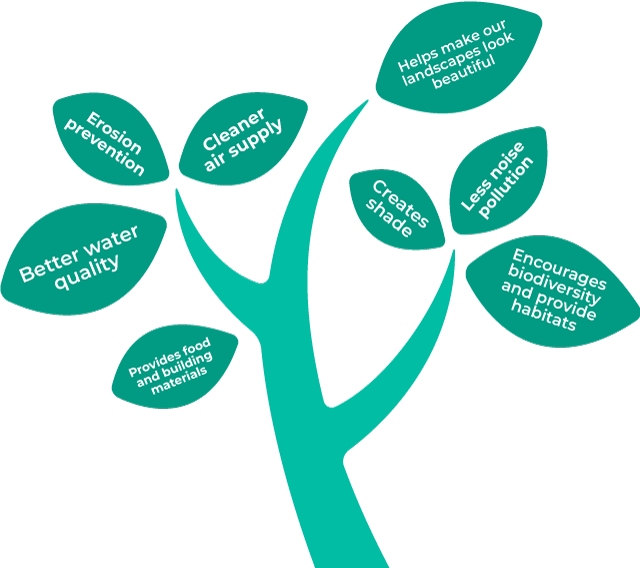Poverty and deforestation are directly linked. Therefore, Eden’s reforestation efforts begin with the dignity of employment. They developed the “Employ to Plant” methodology whereby people living in the communities surrounding the planting sites are hired to restore their land. Through steady employment, people who have been living in poverty can quickly begin to provide food, shelter, and resources for their families.
Eden provides fair wage employment that surpasses the minimum wage requirements of each nation. The wages provided have proven to be transformational for those who work for them. Employee wages vary based on the wage requirements of each project nation and the position being filled. While salaries in developing countries are much lower than many of us are accustomed to, all employees receive fair and consistent income to lift them out of extreme poverty and enable them to care for their families. Employees are paid a fixed daily salary and receive the same amount even if the day is short or if poor weather conditions prohibit them from working. During COVID 19 restrictions, their teams received their regular salaries and were amazed and pleased with the continuance of their employment while so many around them had lost their income source.
Eden begins each restoration project by prioritising the needs of the local community first. Before being hired by Eden, most people working at Eden Reforestation Projects’ nurseries and planting sites never had a cash-paying job. As the land is restored, it begins to provide for them through improved soil for farming, improved fishing due to decreased erosion, and restored and refilled aquifers. Additionally, food security and income increase as Eden’s employees further benefit from agroforestry projects and their ability to begin micro-enterprises. Many of their employees report that their income from Eden has enabled them to purchase their freedom from debt slavery. They can buy boats, fishing equipment, and many now own land. They can afford medication and get medical care when it is needed. They no longer live day-to-day, and thousands of children who used to have to work to help their parents make ends meet are now attending school. Eden have even built two schools in Madagascar to enable children in remote villages to go to school.
You can learn more about Eden’s socio-economic impact through their Youtube videos. Here are two that are really inspiring: Shaffi’s story and Maman’i Kambina.
Eden also has a profile on Candid, a platform that rates nonprofits, where they have achieved a Platinum Seal of Transparency EDEN REFORESTATION PROJECTS – GuideStar Profile.




